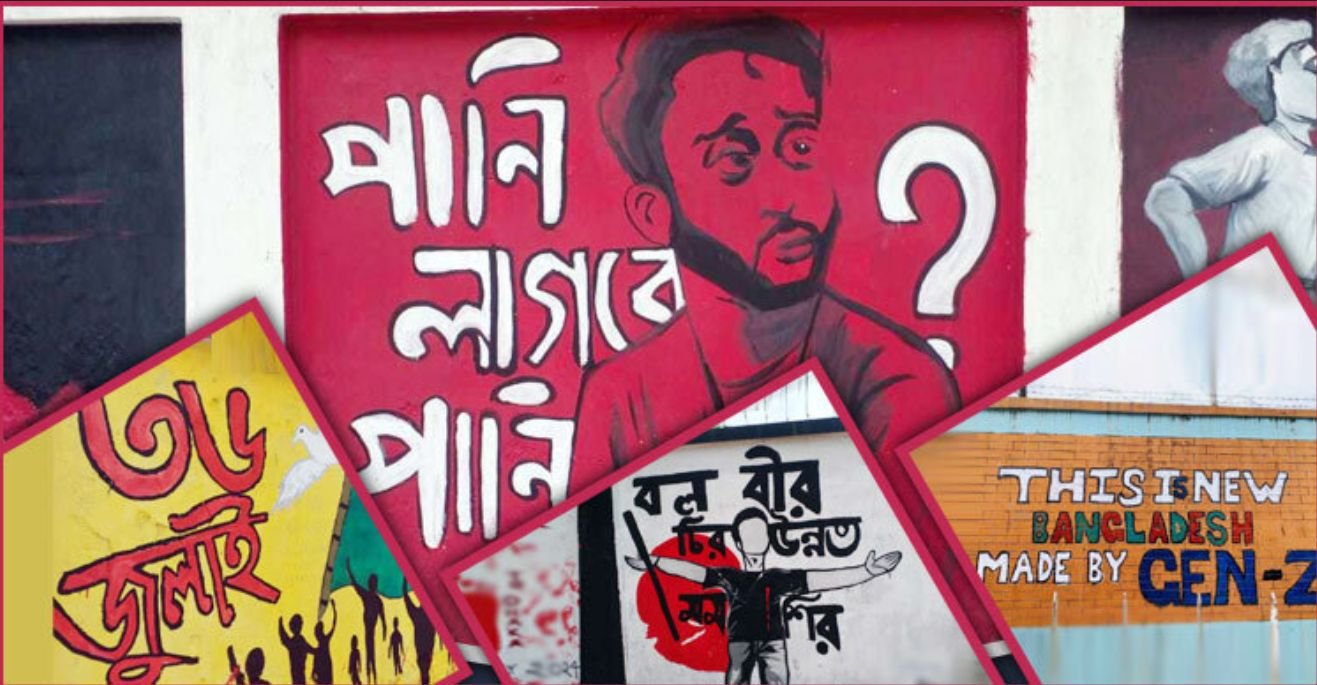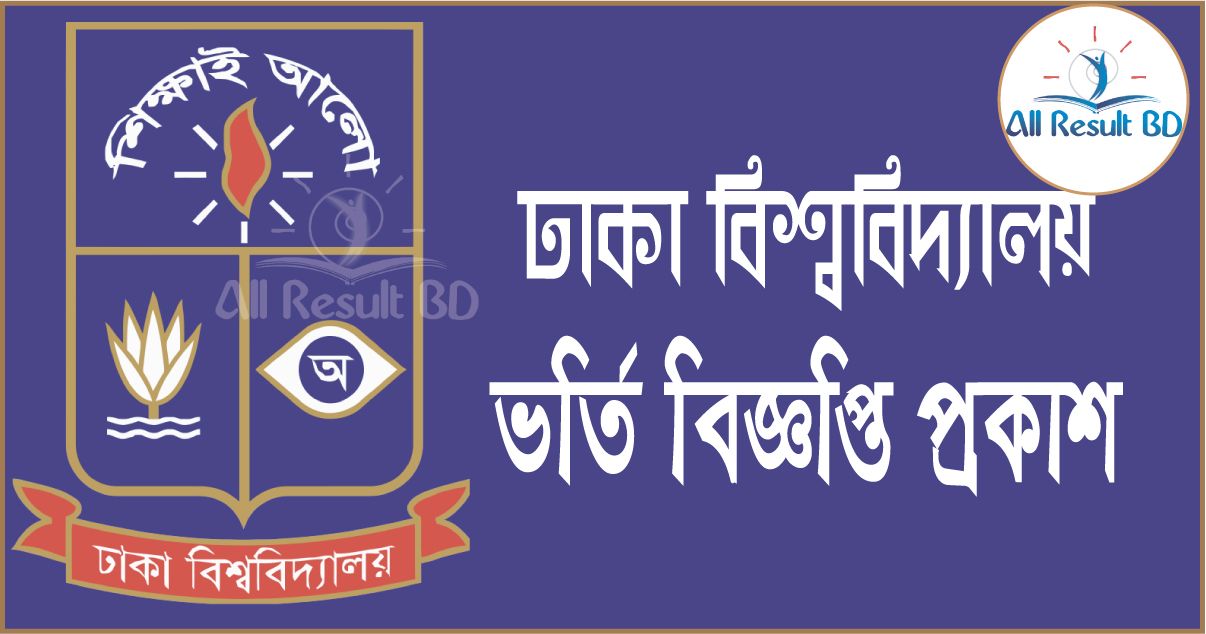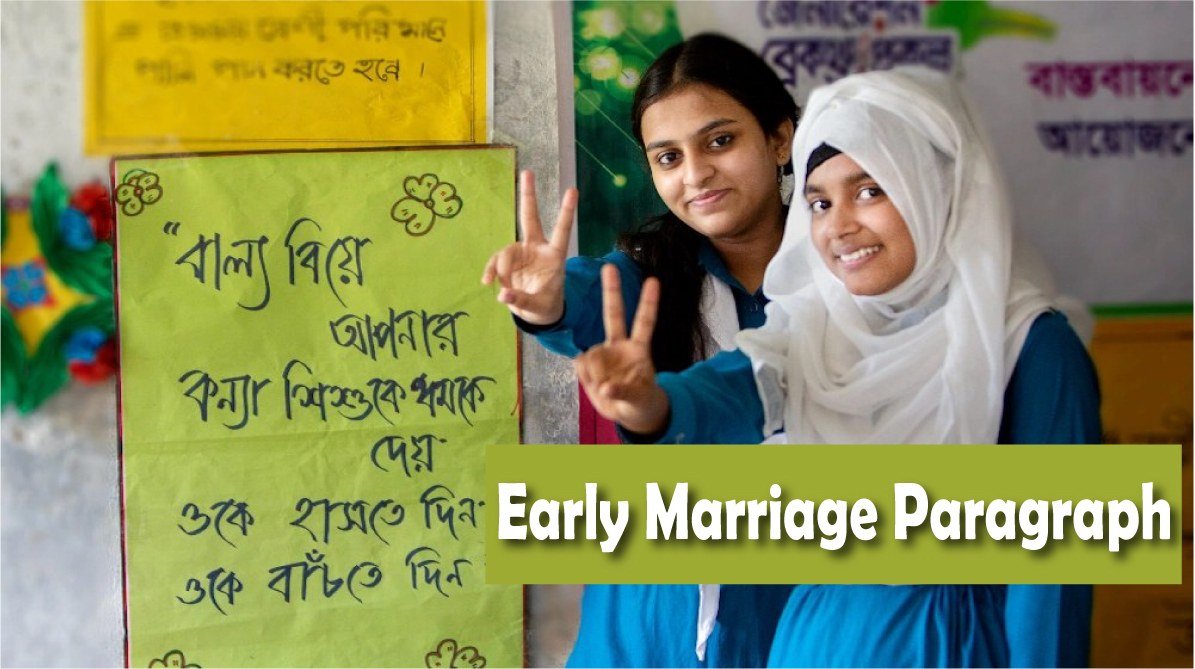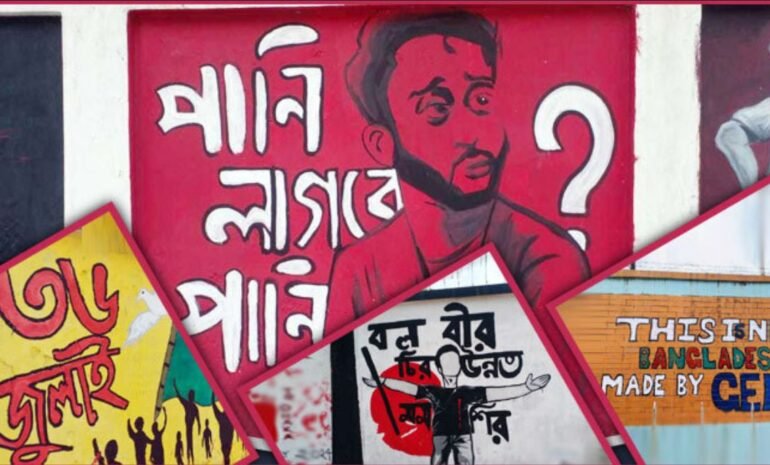The July Revolution Paragraph is an important topic in the history of Bangladesh, reflecting a monumental shift in the country’s political landscape. This revolution, which started as a protest against the quota system in government jobs, rapidly evolved into a mass uprising against the long-standing autocratic rule of Prime Minister Sheikh Hasina. The movement was characterized by widespread student protests, significant casualties, and the eventual resignation of Sheikh Hasina, marking the end of her 16-year rule. Understanding the July Revolution Paragraph is essential for students preparing for SSC, HSC, and other educational levels as it encapsulates the power of youth activism and the struggle for democratic change in Bangladesh.
July Revolution Paragraph
The July Revolution 2024, also known as the Quota Reform Movement, was a historic event in Bangladesh that marked a significant turning point in the country’s political landscape. The movement was initiated by students protesting against the reinstated quota system in government jobs, which was perceived as discriminatory and unfair. Led by the Anti-Discrimination Students Movement, the protest gained momentum through organized programs such as “Bangla Blockade.” The situation escalated when police opened fire on protesters, killing students Abu Sayeed and Mir Mughda. These tragic incidents intensified the movement, transforming it from a demand for quota reform into a nationwide mass uprising against authoritarian rule. The government responded with extreme force, leading to a massacre where many students and ordinary people lost their lives. Amid growing public outrage and pressure from the military, Prime Minister Sheikh Hasina resigned and fled to neighboring India, ending her 16-year-long rule. The revolution was not just about the abolition of the quota system but symbolized the people’s struggle for democracy and justice. Many view this movement as Bangladesh’s second independence, bringing new hope for the nation’s future.
Check also: Our National Flag Paragraph
July Revolution Paragraph for SSC
The July Revolution of 2024 was a historic movement in Bangladesh that transformed the nation’s political landscape. It began as a student-led protest against the existing government job quota system, following a High Court verdict. Over time, the movement evolved into a mass uprising against the authoritarian government of Sheikh Hasina. The peaceful protests were met with violence, leading to casualties among students and ordinary citizens. Eventually, under immense pressure, Sheikh Hasina resigned and fled the country, ending almost 16 years of autocratic rule. This revolution is seen by many as the second independence of Bangladesh, symbolizing the triumph of the people’s will over dictatorship.
অনুবাদ:
জুলাই বিপ্লব এর প্যারাগ্রাফ:
২০২৪ সালের জুলাই বিপ্লব ছিল বাংলাদেশে একটি ঐতিহাসিক আন্দোলন যা দেশের রাজনৈতিক পরিসরে একটি পরিবর্তন আনে। এটি সরকারি চাকরির কোটা ব্যবস্থার বিরুদ্ধে ছাত্রদের নেতৃত্বে শুরু হয়েছিল, হাইকোর্টের রায়ের পর। সময়ের সঙ্গে সঙ্গে আন্দোলনটি শেখ হাসিনার স্বৈরাচারী সরকারের বিরুদ্ধে একটি গণজাগরণের রূপ নেয়। শান্তিপূর্ণ প্রতিবাদগুলো সহিংসতার শিকার হয়, যার ফলে ছাত্র ও সাধারণ মানুষের অনেক প্রাণহানি হয়। অবশেষে, প্রচণ্ড চাপের মুখে শেখ হাসিনা পদত্যাগ করেন এবং দেশ ছেড়ে পালিয়ে যান, প্রায় ১৬ বছর ধরে চলা স্বৈরশাসনের অবসান ঘটে। এই বিপ্লবকে অনেকেই বাংলাদেশের দ্বিতীয় স্বাধীনতা হিসেবে দেখতে পেয়েছেন, যা স্বৈরশাসনের বিরুদ্ধে জনগণের ইচ্ছার বিজয় হিসেবে প্রতীকী।
গুরুত্বপূর্ণ শব্দগুলোর অর্থ:
quota—কোটা; reform—সংস্কার; movement—আন্দোলন; revolution—বিপ্লব; historic—ঐতিহাসিক; protest—প্রতিবাদ; verdict—রায়; authoritarian—স্বৈরাচারী; casualties—প্রাণহানি; pressure—চাপ; resignation—পদত্যাগ; dictatorship—স্বৈরতন্ত্র; triumph—বিজয়; uprising—গণজাগরণ; independence—স্বাধীনতা; citizens—নাগরিক।
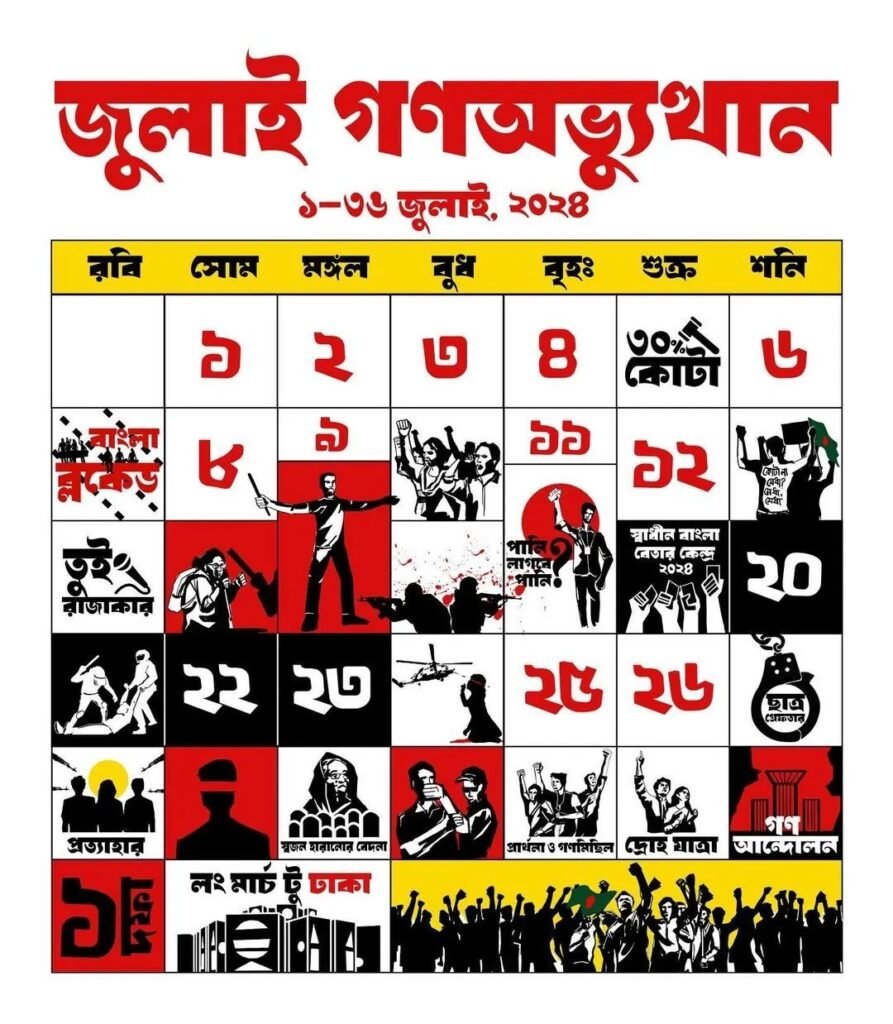
See also: Rohingya Crisis Paragraph
July Revolution Paragraph For HSC
Conclusion:
The July Revolution Paragraph serves as a valuable lesson for students, offering insight into the power of collective action and the fight for justice. It is a crucial part of Bangladesh’s modern history, emphasizing the role of the youth in challenging dictatorship and bringing about significant political reform. This topic is beneficial for students in SSC, HSC, and beyond.

